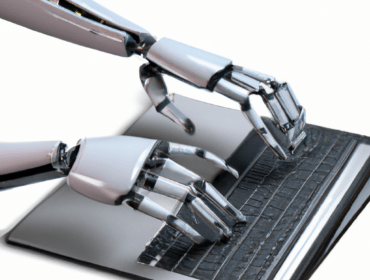The Legal Implications of AI in Content Creation
Artificial Intelligence (AI) is increasingly being used to create content, raising legal questions about authorship and copyright. While there is no clear-cut answer, understanding the legal considerations is crucial for anyone publishing content written by AI.
Copyright Law and AI-Generated Content
Understand that copyright law protects original works of authorship, including literary, dramatic, musical, and artistic works. AI-generated content would likely fall under this category as it is considered a “work” created by the AI system. However, the question of authorship becomes complex when it comes to AI-generated content. Under copyright law, the author of a work is typically the person who created it, but in the case of AI-generated content, it can be argued that the AI system is the “author” of the work, rather than the person who programmed or trained the AI. This raises issues of ownership and control over the content.
Training Data and Copyright Infringement
Another legal consideration is the use of data or other materials used to train the AI system. If the AI system is trained on copyrighted materials, such as text or images, the resulting content may infringe on the copyright of those materials. It is important to obtain permission from the copyright holder before using any copyrighted materials to train the AI system.
Fair Use Doctrine
The fair use doctrine allows for limited use of copyrighted material without permission from the copyright holder. This doctrine is determined on a case-by-case basis, and factors such as the purpose and character of the use, the nature of the copyrighted work, and the amount and substantiality of the portion used are considered. It is important to consult legal professionals to determine if a use is considered fair use.
In summary, while it is legal to publish content written by AI, the legal questions surrounding authorship and copyright can be complex. It is crucial to consider these issues and consult with legal professionals before publishing any AI-generated content.




